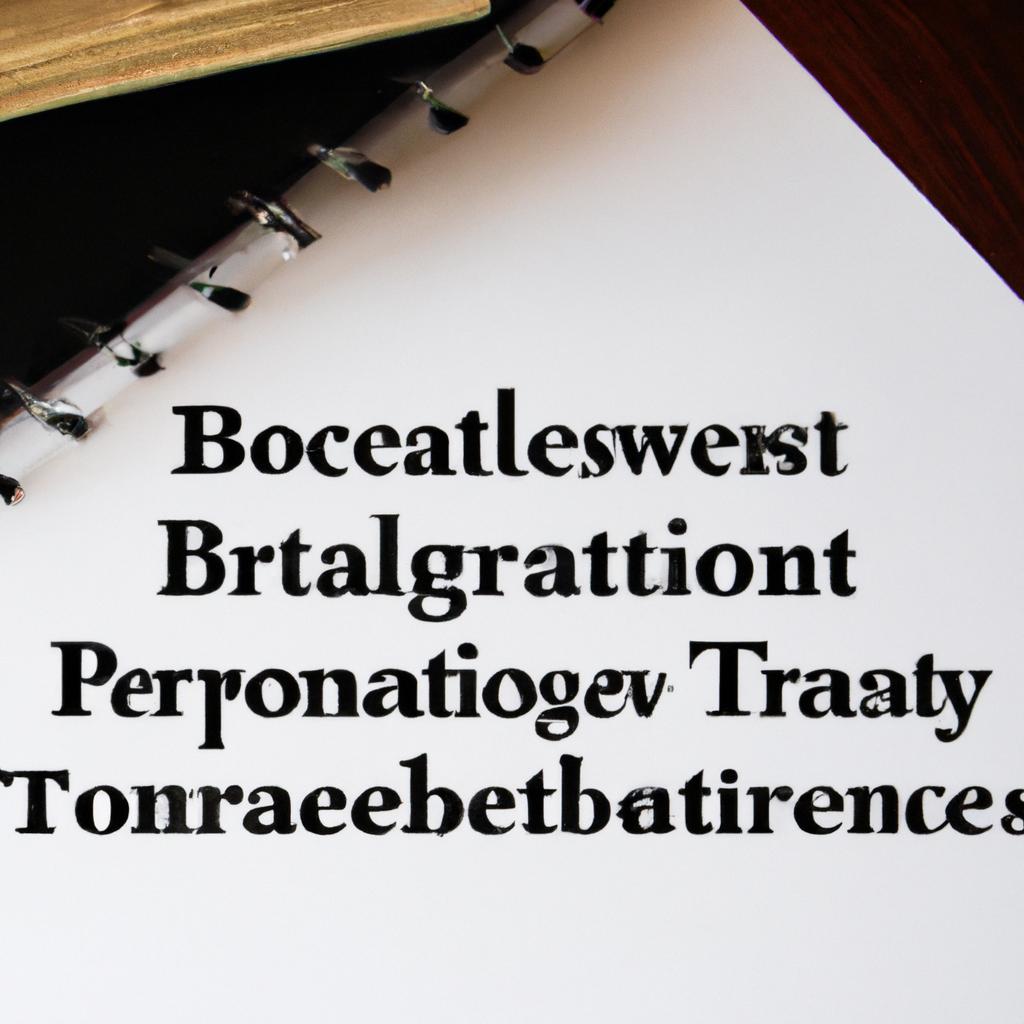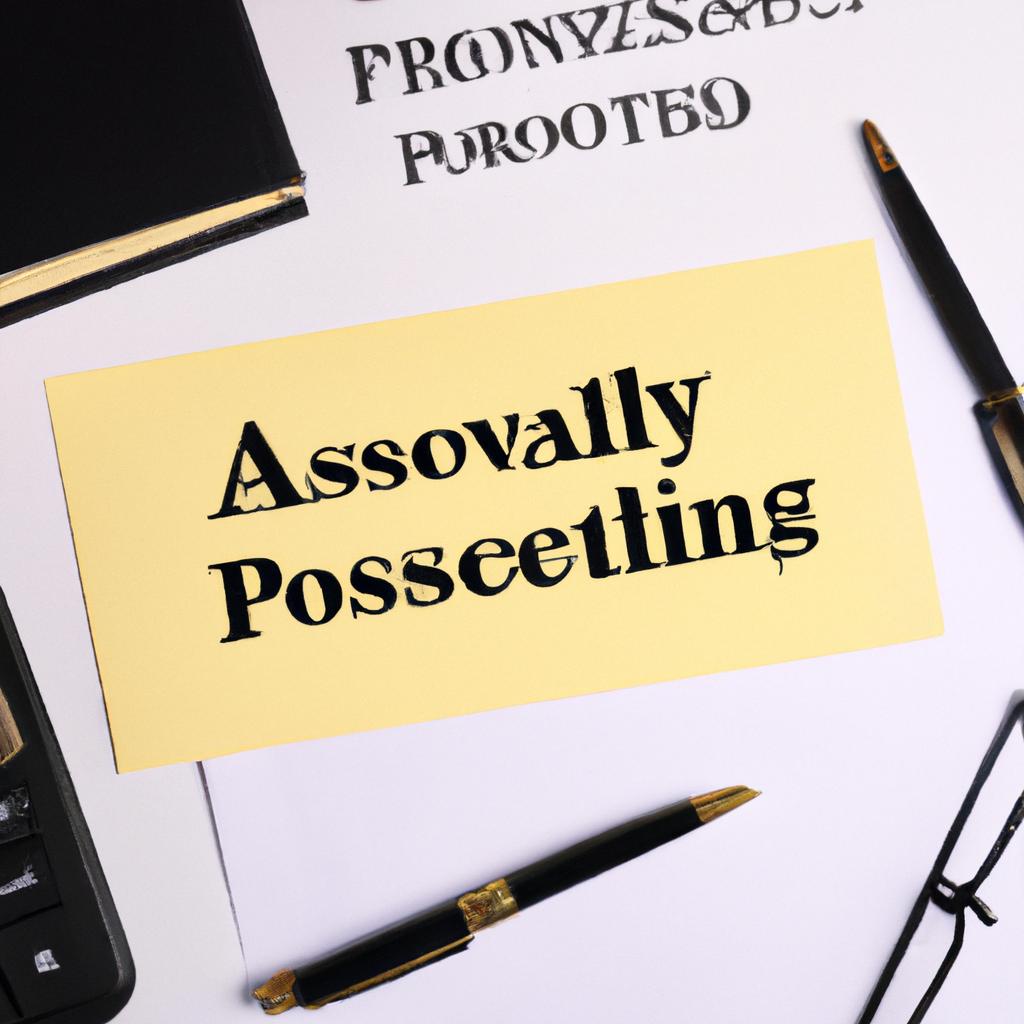Probate can be a complex and time-consuming process that can add stress to an already difficult situation. As experienced lawyers in the field of estate planning, we understand the importance of avoiding probate whenever possible. In this article, we will discuss strategies and methods to help you avoid the probate process and ensure a smooth transition of your assets to your loved ones. Let us guide you through the intricacies of estate planning to protect your assets and legacy. Welcome to the Morgan Legal Group, where your peace of mind is our top priority.
– Understanding the Probate Process: Key Steps and Potential Pitfalls
When it comes to avoiding probate, there are several strategies that can be implemented to ensure that assets are passed on seamlessly to beneficiaries. One of the most common ways to avoid probate is by establishing a living trust. By transferring assets into a trust, they are no longer considered part of the probate process and can be distributed according to the terms of the trust. This can help to expedite the transfer of assets and avoid the potential delays and costs associated with probate.
Another way to avoid probate is by designating beneficiaries on certain assets such as retirement accounts, life insurance policies, and bank accounts. By naming beneficiaries, these assets can pass outside of probate directly to the designated individuals. Additionally, joint ownership of property with rights of survivorship can also help to avoid probate as the property automatically passes to the surviving joint owner upon the other owner’s death. It is important to consult with an experienced estate planning attorney to determine the best strategy for avoiding probate based on your individual circumstances.

– Strategies to Minimize Probate: Establishing Trusts and Utilizing Beneficiary Designations
When it comes to minimizing probate, establishing trusts and utilizing beneficiary designations can be highly effective strategies to ensure your assets are passed on smoothly to your loved ones. By setting up a trust, you can bypass the probate process altogether, saving time and money for your beneficiaries. Trusts provide privacy and flexibility in the distribution of assets, allowing you to outline specific instructions on how your estate should be managed.
Another way to avoid probate is by designating beneficiaries on your financial accounts and insurance policies. By naming beneficiaries, you can ensure that these assets are automatically transferred to the intended recipients upon your passing. This not only avoids probate but also allows for a quicker distribution of assets to your loved ones. It is important to regularly review and update your beneficiary designations to reflect any changes in your circumstances or relationships.

– Importance of Regularly Updating Your Estate Plan to Avoid Lengthy Probate Proceedings
Updating your estate plan regularly is crucial to avoid lengthy probate proceedings. By keeping your estate plan up to date, you can ensure that your assets are distributed according to your wishes without unnecessary delays and disputes. Here are some key reasons why frequent updates are important:
- Changes in Laws: Estate planning laws are subject to change, and what was legal and valid in the past may no longer hold true. By staying informed and updating your estate plan accordingly, you can avoid potential legal issues in the future.
- Changing Circumstances: Life is unpredictable, and your circumstances may change over time. Factors such as marriages, divorces, births, deaths, and changes in financial status can all impact your estate plan. Regular updates ensure that your plan reflects your current wishes and situations.

– Working with Experienced Estate Planning Attorneys to Navigate Probate Avoidance Successfully
Probate can be a complex and time-consuming process that can delay the distribution of assets to beneficiaries. By working with experienced estate planning attorneys, you can navigate probate avoidance successfully. At Morgan Legal Group, our team of knowledgeable lawyers can help you develop a comprehensive estate plan that minimizes the need for probate, ensuring a smooth transfer of assets to your loved ones.
One effective way to avoid probate is by establishing a living trust. A living trust allows you to transfer assets to a trust during your lifetime, which then can be distributed to beneficiaries upon your passing without going through probate. Additionally, joint ownership of property, beneficiary designations, and gifting assets can also help avoid probate. With the guidance of our skilled attorneys, you can create a customized estate plan tailored to your specific needs and goals, ensuring that your wishes are carried out efficiently and effectively.
Q&A
Q: What is probate and why should I avoid it?
A: Probate is the legal process of proving a will and distributing assets after someone passes away. Many people try to avoid probate because it can be time-consuming, expensive, and public.
Q: How can I avoid probate?
A: There are several strategies you can use to avoid probate, such as creating a living trust, naming beneficiaries on your accounts and assets, or owning property jointly with rights of survivorship.
Q: What is a living trust and how does it help avoid probate?
A: A living trust is a legal document that holds your assets during your lifetime and allows them to be distributed directly to your beneficiaries after your death, avoiding the probate process.
Q: Can I name beneficiaries on all of my assets to avoid probate?
A: Yes, you can name beneficiaries on many types of assets, such as bank accounts, retirement accounts, and life insurance policies, which will allow these assets to pass directly to your beneficiaries without going through probate.
Q: Is it necessary to work with a lawyer to avoid probate?
A: While you can create some strategies to avoid probate on your own, it is often recommended to work with a lawyer to ensure that your estate plan is properly set up and that all necessary documents are in place.
Key Takeaways
In conclusion, understanding how to avoid probate can help save time, money, and stress for your loved ones after you pass away. By utilizing strategies such as creating a living trust, naming beneficiaries on your accounts, and ensuring your assets are properly titled, you can ensure a smoother transition of your estate to your heirs. Remember, planning ahead is key in avoiding the probate process and protecting your legacy. Take the necessary steps now to secure a more efficient and seamless estate transfer in the future. Thank you for reading and take care!
 Avoiding probate is a smart financial decision that many individuals choose to make in order to protect their assets and ensure their beneficiaries receive the intended inheritance. Probate is the legal process in which a court verifies the validity of a will and resolves any outstanding debts or disputes before distributing assets to the beneficiaries. This process can be time-consuming, costly, and can expose sensitive family matters to the public.
Avoiding probate is a smart financial decision that many individuals choose to make in order to protect their assets and ensure their beneficiaries receive the intended inheritance. Probate is the legal process in which a court verifies the validity of a will and resolves any outstanding debts or disputes before distributing assets to the beneficiaries. This process can be time-consuming, costly, and can expose sensitive family matters to the public.
When it comes to managing your estate, avoiding probate should be a top priority. In this article, we will explore the various ways in which you can avoid going through probate and how it can benefit you and your loved ones. Follow these tips to keep your assets and loved ones out of the probate process.
Create a Revocable Living Trust
One of the most common and efficient ways to avoid probate is by creating a revocable living trust. This legal document allows you to transfer your assets into the trust during your lifetime, with yourself as the trustee in control of managing these assets. This means that upon your death, your chosen successor trustee will be able to distribute the assets to your beneficiaries without the need for probate. A revocable living trust also provides privacy as it is not made public like a will would be during the probate process.
Designate Beneficiaries
Another effective way to avoid probate is to designate beneficiaries for all your assets. This includes bank accounts, investment accounts, retirement accounts, and life insurance policies. By naming beneficiaries, these assets will pass directly to them upon your death without going through probate. It is essential to regularly review and update your beneficiaries, especially after significant life events such as marriage, divorce, or birth of a child.
Joint Ownership
Holding property as joint tenants with rights of survivorship is another way to avoid probate. This means that when one owner passes away, the remaining owners automatically inherit that share. This is a common method for married couples to hold property, but it can also be utilized for other assets such as bank accounts and vehicles. It is important to note that this option only applies to joint ownership with right of survivorship and not tenancy in common.
Gift Giving
Another way to avoid probate is to gift your assets during your lifetime. This method involves transferring ownership of your assets to your intended beneficiaries before your death. This can be a practical option if you have a large estate and want to minimize the value of your estate subject to probate. However, gifting assets to beneficiaries can have negative tax implications, so it is essential to consult with a financial advisor and attorney before implementing this strategy.
Utilize Small Estate Laws
Many states have laws in place that allow for the expedited distribution of small estates, meaning estates with a value below a particular threshold, without going through probate. If your assets fall below the state’s threshold, your beneficiaries can receive their inheritance by simply providing a death certificate and completing some paperwork.
Be Aware of Probate-Avoiding Assets
Some assets naturally avoid probate and pass directly to the designated beneficiaries upon your death. These assets include assets held in a living trust, retirement accounts, and life insurance policies. It is essential to be aware of these assets and make sure they are up to date with accurate beneficiary designations.
The Benefits of Avoiding Probate
Avoiding probate can bring numerous benefits, including time and cost savings, privacy, and avoiding potential family conflicts. By avoiding probate, your loved ones can receive their inheritance promptly and without the added stress of navigating the probate process. Additionally, going through probate can be expensive, and avoiding it can save your beneficiaries and estate thousands of dollars in legal fees.
Practical Tips for Avoiding Probate
Here are some practical tips to help you avoid probate:
– Keep all beneficiary designations up to date.
– Keep your estate planning documents, including your living trust, will, and beneficiary designations, in a safe and easily accessible place.
– Ensure that all your assets are correctly titled in the name of your living trust.
– Regularly review and update your estate plan, especially after significant life events.
– Consider seeking professional advice from an attorney or financial advisor to ensure your estate plan is tailored to your unique needs.
In conclusion, avoiding probate not only helps protect your assets but also provides peace of mind that your loved ones will receive their inheritance promptly and efficiently. By utilizing various strategies, such as creating a revocable living trust, designating beneficiaries, and considering small estate laws, you can successfully avoid probate and protect your estate for future generations.
References:
• https://www.legalmatch.com/law-library/article/how-to-avoid-probate.html
• https://www.kiplinger.com/retirement/estate-planning/603744/how-to-avoid-probate
• https://www.elderlawanswers.com/how-to-avoid-probate-14712


